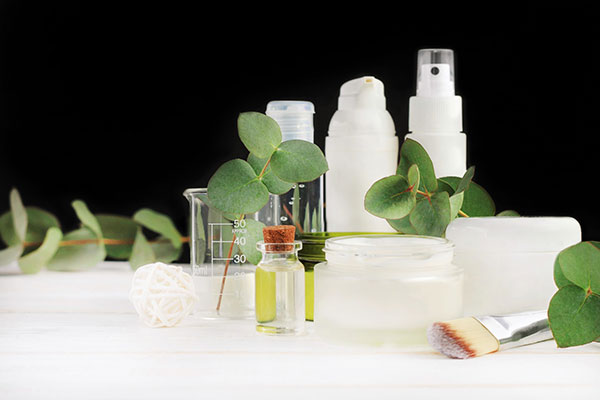 In today’s marketplace, many products are incorrectly labeled as “natural.” In this video by Belinda Carli, you’ll find the facts behind what makes an ingredient truly natural.
In today’s marketplace, many products are incorrectly labeled as “natural.” In this video by Belinda Carli, you’ll find the facts behind what makes an ingredient truly natural.
You’ll discover:
- What processes are used to obtain extracts, esters, solvents and surfactants
- How certain processes and added ingredients can disqualify ingredients from being considered natural
- Why reading labels is so important when determining whether or not a product is natural
- Misinformation about the safety of certain chemicals
Looking for products for use in cosmetic formulations?
Prospector can help you find the products you need for your next formulation. Find technical data, request samples, and connect with global suppliers in just a few clicks.
Search for ingredients on Prospector.
More cosmetic formulation videos:
The views, opinions and technical analyses presented here are those of the author or advertiser, and are not necessarily those of ULProspector.com or UL Solutions. The appearance of this content in the UL Prospector Knowledge Center does not constitute an endorsement by UL Solutions or its affiliates.
All content is subject to copyright and may not be reproduced without prior authorization from UL Solutions or the content author.
The content has been made available for informational and educational purposes only. While the editors of this site may verify the accuracy of its content from time to time, we assume no responsibility for errors made by the author, editorial staff or any other contributor.
UL Solutions does not make any representations or warranties with respect to the accuracy, applicability, fitness or completeness of the content. UL Solutions does not warrant the performance, effectiveness or applicability of sites listed or linked to in any content.



Thank you so much for simplifying such a complex subject fir people who do not have chemical backgrounds. I ha e read other information which has not been as clear. This makes things much easier to understand. I have been trying to wrap my head around this subject and this has really helped.
Thank you for the simple but very informativ video. It also very nicely outlines why some companies use certifications like Cosmos, to show the consumer that the raw materials are controlled by a certification and therefore is more realiable.
Also it was very good that you also mentioned, that just because it is natural does not mean it is safe and some ingredients has been wrongfully accused, like the PEG-components.
Belinda, you video was great!
I do have another question. What about essential oils that have been distilled to fractionate and purify the constituents (with no chemical reactions occurring)? Does the process of distillation cause the product to no longer be a natural material? Just wondering about this.
Distillation is still considered an acceptable process on a natural material for it to be considered ‘naturally derived’. So yes, it would be permitted on essential oils and the fractionated material would still be considered naturally derived.
Thank You Belinda. Look forward to wacthing and learning more from your videos. SImple and clear.
Cuales son los requisitos para accesar a los cursos impartidos por usted.
Quedo atenta a sus comentarios
Please contact us direct for full course information: [email protected]
Kind regards,
Belinda Carli
Director
INSTITUTE OF PERSONAL CARE SCIENCE
A very informative and helpful video. Thank you
Thank you! Happy formulating!
that tuyet voi. cam on ban
Very informative & simplified! It will also be good to know & learn more about Ecocert & Cosmos certificates issued to certain ingredients & whole products.
The explanation of “natural” or “natural origin” is totally clear, thank you for this vulgarization. Besides, the precision “natural does not mean safe” is true. I formulate natural products with plants and I agree with that: for example some plants are allergenic substances.
Hello Belinda, perfect and useful explanation. What you think about the use of supercritical extracts/volatile oils in cosmetics regardless of the high price issue? Would you say these ingredients could be safier than essential oils or solvent-extracted extracts? Best Regards!
As with every cosmetic ingredient, natural or not, the safety of the material needs to be assessed on an individual basis, and in light of what other ingredients are used in the formula and how the finished product is to be applied and used. It is not appropriate to make a blanket statement without considering all of these elements.
If you would like individual assistance, please contact us: https://personalcarescience.com.au/Advice/Advice-2046/.
Kind regards,
Belinda Carli